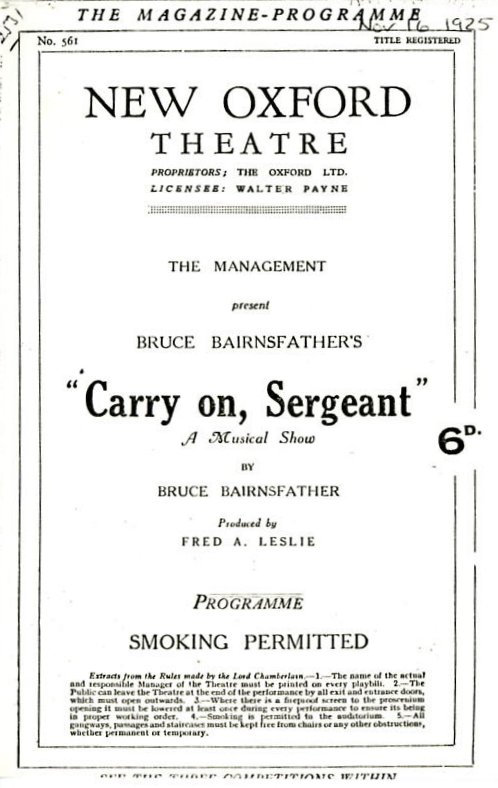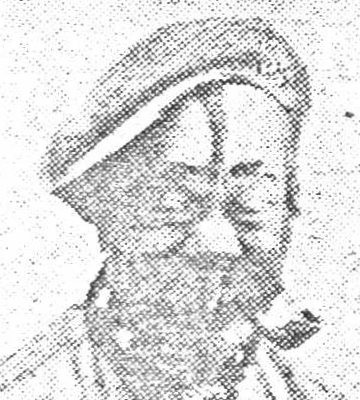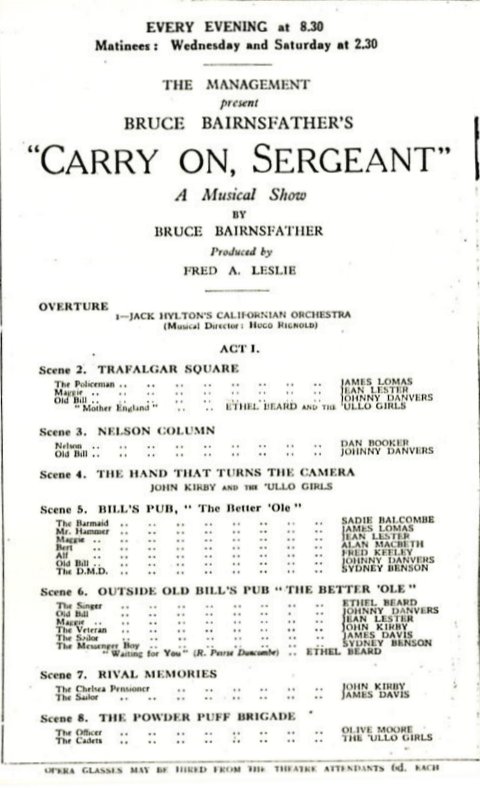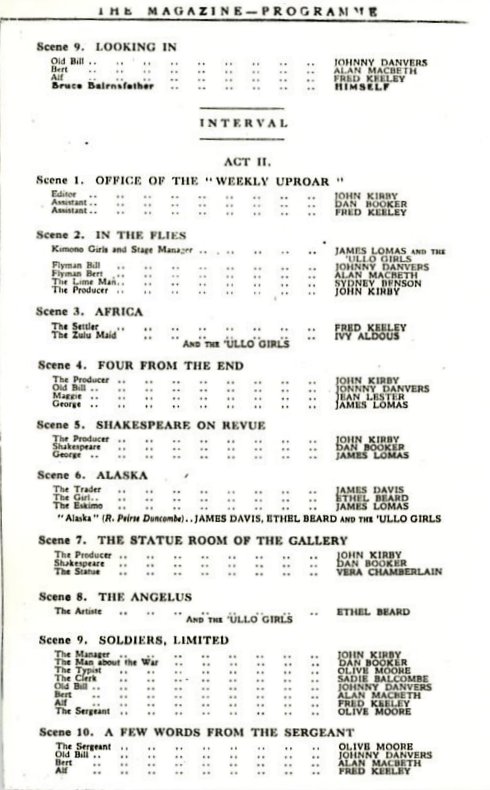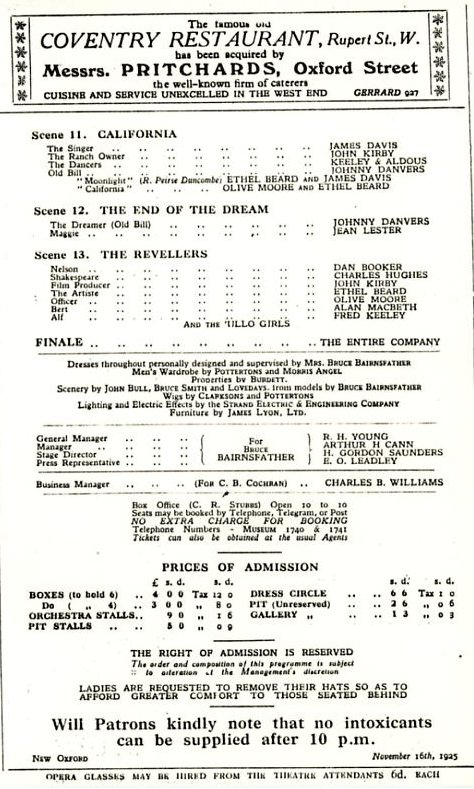Carry On Sergeant!
As the summer of 1925 passed, and with profits from his revue "Ullo!" becoming less as the show continued on its lengthy provincial tour, Bruce Bairnsfather was encouraged to take the show to a London theatre in a bid to achieve greater success. After much agonizing over the decision, he came round to the idea and set about finding a suitable theatre.
Realising that the vast revue was not suitable for a central West End theatre, Bairnsfather approached Charles B Cochran with a view to producing the show at the New Oxford Theatre, which in its previous life had been known as The Oxford, the scene of Bairnsfather's great WW1 success "The Better 'Ole." Cochran controlled the theatre at the time, and the pair came to an agreement whereby the show would be put on at the New Oxford, but at a very heavy cost per week, with a guaranteed running period.
After playing its last provincial date at the Palace Theatre, Reading at the end of September 1925, "Ullo!" underwent a complete overhaul and the format was changed for the London production. It was renamed "Carry On Sergeant!" for the London run, and Bairnsfather also appeared in the 'new' version, playing himself in a scene set in his studio. Johnny Danvers, who had played Old Bill during the early stages of the "Ullo!" tour, was re-engaged for the part at the New Oxford.
Time was against the production from the start, and when "Carry On Sergeant!" finally opened at the New Oxford Theatre on 28 October 1925 this was all too evident. One reviewer commented that "the sense of disillusionment hung like a pall over these civilian adventures of Old Bill," adding that "the twenty-six ill-assorted and too frequently go-as-you-please items which comprise this disorderly revue are poor compensation for the fun we used to have."
The theatrical trade paper "The Era" was no kinder, opening their review with the thought that "one of the best things in captain Bairnsfather's show...was a momentary glimpse of Old Bill with Bert and Alf in the Better 'Ole...the audience was reminded how entertaining Bairnsfather was in his old medium." It went on to describe "Carry On Sergeant!" as being presented in an "unfinished state...the various sketches for the most part thrown together rather than written, and the whole thing was sadly unrehearsed."
Bruce Bairnsfather was painfully aware from the start that the show was not going to be the success he had hoped. On top of everything else, the New Oxford itself was not drawing the audiences like it used to, resulting in a shortfall in profits. All credit went to the cast though, and Johnny Danvers was "an excellent Old Bill and his cheery optismism and broad good humour kept things from flagging at several awkward moments."
The success of the show was crucial to Bairnsfather. He had personally invested heavily in the production, and was "not in a position to absorb and more financial kidney punches without feeling them." Unfortunately he was at one point left to "stand the losses" without the help of a previous co-backer of the show. Despite poor takings the show was kept running for the guaranteed number of weeks, in an attempt to reduce the losses - if the show had been withdrawn early, the rent on the theatre would still have had to be paid, regardless. During this period Bruce Bairnsfather was "vacuum-cleaned of all the ready money I possessed, and had to use a reversionary interest as well. However I managed to face the music. All salaries to actors and staff were fully paid up, and all the production cost that my money would run to, cleared off as well."
"Carry On Sergeant!" closed on 28 November 1925, after just 35 performances. Bairnsfather, who had to pay out around £1,000 per week during this time, was left financially crippled. He later said "there are, I know popular dodges for going bankrupt on these occasions, but I used none of these. Much as I paid up at the time, I was years paying off the whole indebtedness, and financially catching up on life again." No exact financial records survive, but at his bankruptcy hearings in 1932, it was claimed Bairnsfather lost a total of £8,000 (approximately £480,000 today) of his own money through this venture. It is no wonder that he described the decision to take the show to London as "the biggest mistake I ever made."
